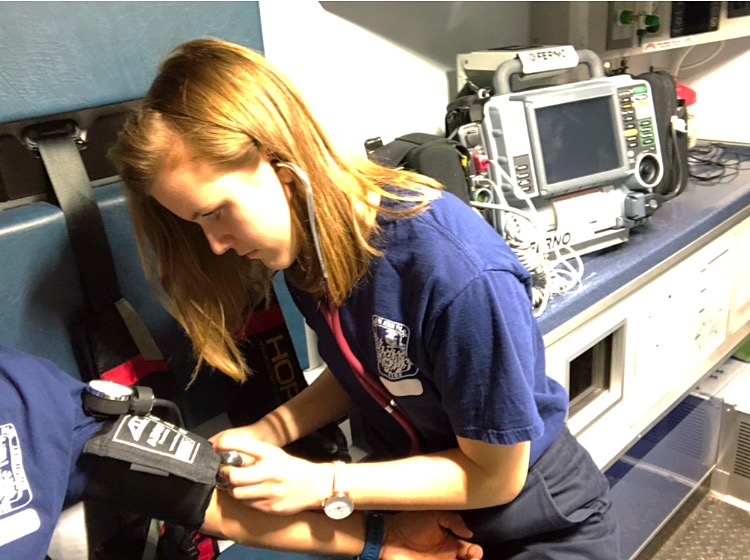Junior Sophie Delta began a job as an Emergency Medical Technician (EMT) last summer at the Cabin John Park Fire Department in Bethesda, Maryland.
EMTs work alongside paramedics and care for the sick or injured in emergency medical settings. They respond to emergency calls, perform medical services and transport patients to medical facilities.
Delta said both her mother’s experiences as a volunteer firefighter and her interest in Chemistry and Biology encouraged her to go into the medical field.
“My mom volunteered at the fire station 20 years prior,” Delta said. “I grew up hearing all her stories about […] her amazing and scary calls, [which is what] inspired me to be an EMT.”
Delta said the impact her work makes on the community varies with each patient and call. If the individual’s injuries are non-life threatening and a hospital ride is all they need, the impact is not very large. But, in other cases, she said EMTs make the difference in saving a person’s life.
“I remember one patient [who] had trouble breathing, so we gave him oxygen,” Delta said. “Then he fainted [and] had a heart attack right in front of [me]. He lost his pulse and we did CPR and used the [Automated External Defibrillator]. We actually brought him back.”
She said she spent time reflecting on the experience after it was over.
“I thought it was amazing to hear him talk to us in the ambulance on the way to the hospital because he was dead for three or four minutes,” Delta said.
In addition to saving lives, there are other, more personal aspects of the job Delta said she favors as well, and one of the highlights of her work is the other EMTs at the station.
“Those are the people that I know really well and I have to trust to do the right thing,” Delta said. “They teach me and I teach them; we’re always learning from each other. I think the relationships you build are amazing.”
Despite the joy of helping people and the bonds she forms with her fellow EMTs, Delta said there are challenges she faces both in and outside the station.
“I’m on call twelve hours a week, [and] sometimes [I’ll leave] really late at night [when I’m] on call on Thursdays and have school the next day,” Delta said. “[Situations like] that [are] really hard sometimes. Managing work and Thursday night homework is really hard [in terms of] managing my time.”
2019-02-15

